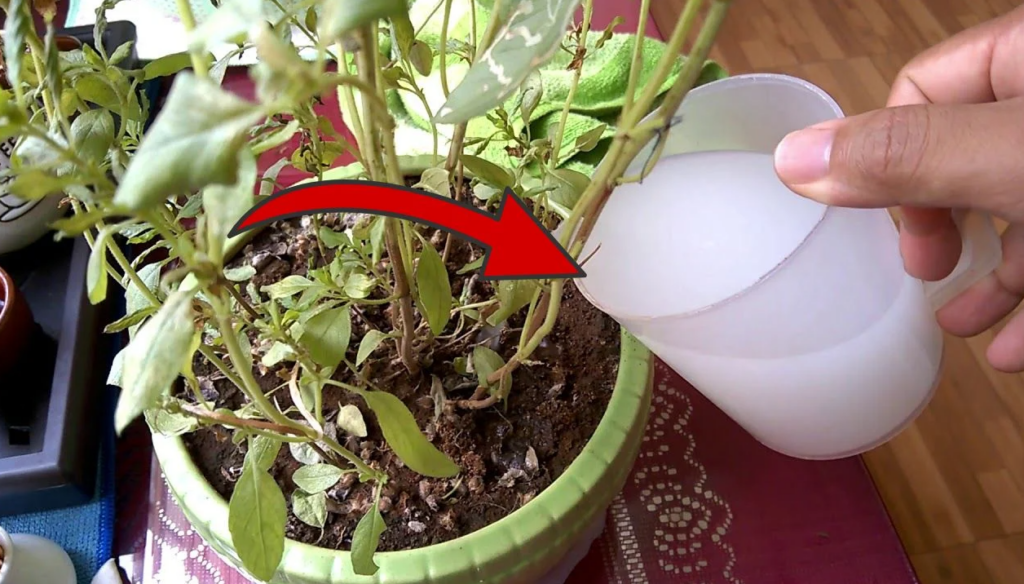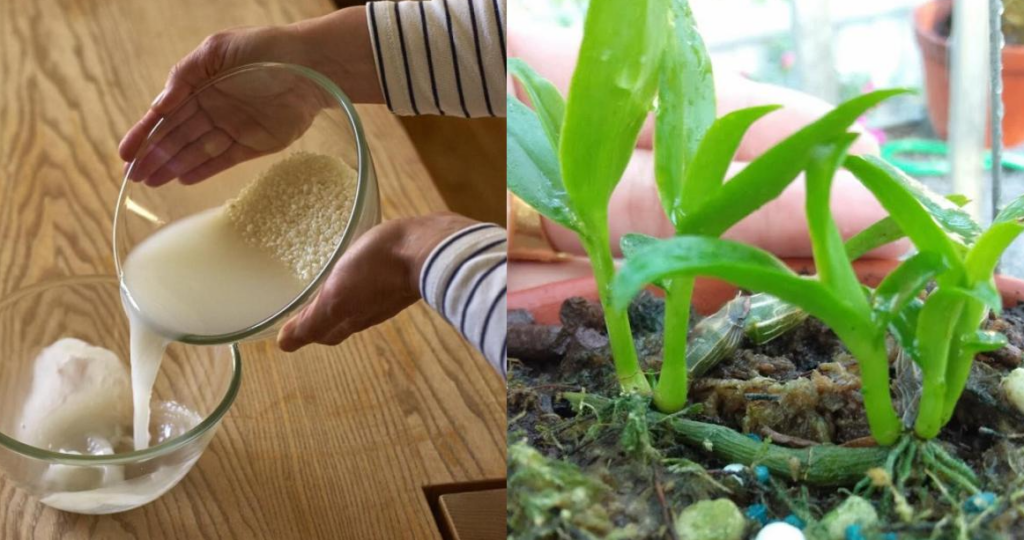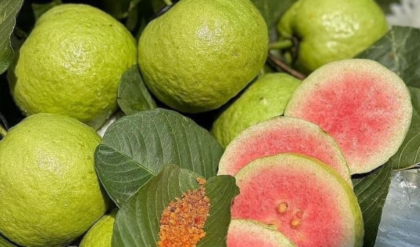In the quest for eco-friendly gardening, many gardeners are exploring natural and sustainable alternatives to support plant health. One such solution is rice water, a nutrient-rich liquid left over after rinsing or boiling rice. Typically discarded, rice water is increasingly being recognized as an effective and environmentally friendly way to water plants. In this article, we’ll explore the benefits of rice water for plants, how it works, and how you can incorporate it into your plant care routine.

What is Rice Water?
Rice water is simply the milky liquid that remains after washing or cooking rice. It contains trace minerals, vitamins, and starches derived from the rice, making it a mild nutrient source for plants. As rice soaks or cooks, nutrients like nitrogen, phosphorus, potassium, and a variety of vitamins leach into the water, creating a gentle but effective tonic for plants.
Key Benefits of Rice Water for Plants
1. Natural Fertilizer
- Nutrients Boost: Rice water contains small amounts of essential nutrients such as nitrogen, phosphorus, and potassium—key elements for plant growth. While rice water isn’t as concentrated as commercial fertilizers, it offers a gentle boost that can benefit plants over time, especially when used regularly.
- Starch Content: The starch in rice water provides an energy source for beneficial soil microbes, promoting a healthy soil ecosystem. These microbes aid in breaking down organic matter, enriching the soil, and making nutrients more accessible to plants.
2. Environmentally Friendly Solution
- Using rice water reduces waste, offering a sustainable approach to plant care. Rather than pouring rice water down the drain, repurposing it for your garden or houseplants is a simple, effective way to practice eco-friendly gardening.
3. Safe for Most Plants
- Rice water is generally mild, making it suitable for many types of plants, including houseplants, garden flowers, and some vegetables. However, it’s best to test on a single plant first, particularly with sensitive or delicate species, to ensure it reacts well.
How to Use Rice Water for Plants

1. Preparation
- From Rinsed Rice: The easiest way to make rice water is by rinsing raw rice. Add water to the rice, swish it around for a few minutes, and drain the water into a container. This rinse water can be used immediately for plants.
- From Cooked Rice: You can also collect rice water after cooking rice. Allow the water to cool completely before using it, as hot water can harm plants.
2. Application Frequency
- To prevent over-fertilization, use rice water sparingly, about once a week for potted plants. For outdoor plants, every two weeks is usually sufficient.
- Alternating with plain water can help prevent any build-up of starches or nutrients in the soil.
3. Dilution for Sensitive Plants
- If you’re concerned about potential adverse effects, consider diluting the rice water by half with plain water. This reduces the concentration of starch and nutrients, making it even gentler for plants that might be more sensitive.
Which Plants Benefit Most from Rice Water?

While rice water can benefit a variety of plants, it’s especially effective for:
- Leafy greens and vegetables: Rice water supports their need for nitrogen and other essential nutrients.
- Indoor plants: Many common houseplants like pothos, spider plants, and peace lilies can respond well to rice water.
- Flowering plants: Plants that benefit from extra potassium, such as roses and hibiscus, may benefit from the mild boost in nutrients.
Precautions When Using Rice Water
- Avoid Fermented Rice Water: If rice water is left to sit for too long, it can begin to ferment, which can produce a sour smell and may negatively impact plants. Always use fresh rice water and store it in a cool place if you need to keep it for a day or two.
- Watch for Mold: The starches in rice water can sometimes encourage mold growth in soil. If you notice mold, reduce the frequency of application or increase the dilution.
- Use on Soil, Not Leaves: Apply rice water directly to the soil rather than the leaves, as it can leave a sticky residue on foliage that may attract pests.
Additional Uses of Rice Water in the Garden

Aside from watering plants, rice water can be used in other ways to benefit your garden:
- Composting: Adding rice water to your compost pile can help stimulate microbial activity, accelerating the breakdown of organic material.
- Soaking Seeds: Some gardeners use diluted rice water to soak seeds before planting. The nutrients in the water can give seedlings a healthy start.
Conclusion
Rice water is a simple, sustainable, and effective way to support plant health, making it an ideal solution for eco-conscious gardeners. With its gentle nutrient profile, it can boost plant growth, support soil health, and reduce waste. By incorporating rice water into your plant care routine, you’re not only promoting greener gardening practices but also giving your plants a gentle, natural boost.
Experiment with rice water in your plant care regimen and see the results firsthand. Whether for indoor plants or garden beds, rice water might just become your favorite secret for lush, thriving plants!





